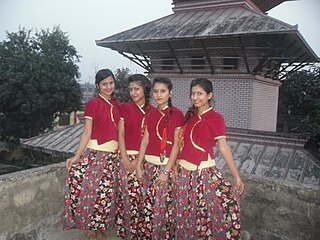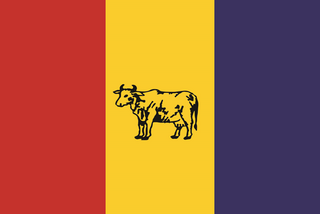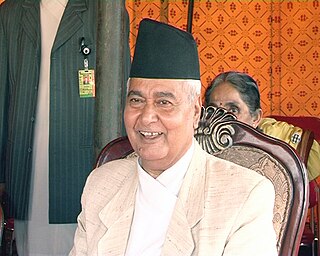
In the 2011 census, Nepal's population was approximately 26 million people with a population growth rate of 1.35% and a median age of 21.6 years. In 2016, the female median age was approximately 25 years old and the male median age was approximately 22 years old. Only 4.4% of the population is estimated to be more than 65 years old, comprising 681,252 females and 597,628 males. 61% of the population is between 15 and 64 years old, and 34.6% is younger than 14 years. In 2011, the Birth rate is estimated to be 22.17 births per 1,000 people with an infant mortality rate of 46 deaths per 1,000 live births. Compared to the infant mortality rate in 2006 of 48 deaths per 1000 live births, the 2011 IMR is a slight decrease within that 5-year period. Infant mortality rate in Nepal is higher in rural regions at 44 deaths per 1000 live births, whereas in urban regions the IMR is lower at 40 deaths per 1000 live births. This difference is due to a lack of delivery assistance services in rural communities compared to their urban counterparts who have better access to hospitals and neonatal clinics. Life expectancy at birth is estimated to be 67.44 years for females and 64.94 years for males. The mortality rate is estimated to be 681 deaths per 100,000 people. Net migration rate is estimated to be 61 migrants per 100,000 people. According to the 2011 census, 65.9% of the total population is literate.

The Communist Party of Nepal was one of the two major communist parties in Nepal. The party was formed in January 1991 with the unification of the Communist Party of Nepal (Marxist) and the Communist Party of Nepal (Marxist–Leninist). It has led four governments: from 1994 to 1995 under Man Mohan Adhikari, from 2009 to 2011 under Madhav Kumar Nepal, in 2011 under Jhala Nath Khanal, and from 2015 to 2016 under KP Sharma Oli. The party was also a junior partner in five coalition governments: in 1997 under Lokendra Bahadur Chand, from 1998 to 1999 under Girija Prasad Koirala, from 2008 to 2009 under Pushpa Kamal Dahal, from 2011 to 2013 under Baburam Bhattarai, and from 2014 to 2015 under Sushil Koirala. It dissolved on 17 May 2018 to make way for the Nepal Communist Party in a merger with the Communist Party of Nepal.

The Thami are an indigenous tribe of hills east of Kathmandu, Nepal's capital. They mainly live "in Suspa, Kshamawati, Khopachagu, Alampu, Bigu, Kalinchok, Lapilang and Lakuri Danda villages of Dolkha District" in East-Central Nepal. They are locally known as Thangmi.
Communist Party of Nepal was a political party in Nepal existing from 2005 until 2013.
Lohar are considered to be a caste among Hindus and Sikhs and a clan among Muslims in the Indian state of Uttar Pradesh and Nepal. They form part of a loose grouping of traditionally artisanal castes known as Panchals. Regional synonyms include Vishwakarma and Saifi.
Communist Party of Nepal (Unified) was a communist party in Nepal. The party was formed in 2007 through the merger of three groups:

Kusunda (Kusanda) is a language isolate spoken by a handful of people in western and central Nepal. It has only recently been described in any detail.

The 2011 National census lists 123 Nepalese languages spoken as a mother tongue in Nepal. Most belong to the Indo-Aryan and Sino-Tibetan language families.

Rastriya Prajatantra Party Nepal was a Hindu right-wing, cultural conservative and royalist political party in Nepal.
Suresh Kumar Alemagar is a Nepalese politician, belonging to the Communist Party of Nepal (Maoist). He was previously working as a lecturer in English at the Nepal Law Campus, Tribhuvan University, Kathmandu.

Parmanand Jha is a Nepali politician who served as the first Vice President of Nepal from 23 July 2008 to 31 October 2015. Previously he served as a Supreme Court judge. He was born and brought up in Darbhanga district in the Indian State of Bihar with his maternal uncle's home to a Nepali parents - according to Hindu traditions. His father's belongs to historical Mithila region of Nepal, and so he is a descendent native citizen and federal subject of Nepal. Jha resigned as a judge in December 2007 after he was not proposed by the Judicial Council as a permanent judge at the apex court, following allegations of involvement in drug smuggling. Later, Jha joined political life and became a member of the Madhesi Janadhikar Forum, one of several organizations agitating against dominance of Nepal's politics by the minority ruling elite Bahuns of Pahari population against the Madhesi origin Nepalis. On 19 July 2008, he was elected as Vice-President of Nepal by the Constituent Assembly.
The hyolmo people are an indigenous people of the Eastern Himalayan Region in Nepal. They refer to themselves as the "hyolmo", and are native residents of the Helambu valleys and the surrounding regions of northeastern Nepal. The combined population of hyolmos in these regions is close to 100000,000. They also have sizeable communities in Bhutan Darjeeling and Sikkim. They are among the 59 indigenous groups officially recognized by the Government of Nepal as having a distinct cultural identity and are also listed as one of the 645 Scheduled Tribes
The Communist Party of Nepal Marxist−Leninist (Samajbadi) was a political party in Nepal. The party was founded on August 6, 2010, through a split in the Communist Party of Nepal (Marxist-Leninist). Four of the Constituent Assembly members of CPN(ML) joined the new party; Ganesh Chaudhary, Sharada Nepali, Tilak Bahadur Thapa Magar and Yadu Bansha Jha. The formation of the new party came just hours before the crucial 4th vote on election of Prime Minister. CPN-ML(Samajbadi) declared its support for Maoist chairman Pushpa Kamal Dahal in the election.

Cosenza Calcio S.r.l. is an Italian football club, based in Cosenza, Calabria. Currently the team plays in Serie B, the second tier of Italian football, after earning promotion from Serie C on 16 June 2018 by winning the league playoffs.
Om Gurung is head of the Central Department of Sociology/Anthropology of the Tribhuvan University of Nepal. He also served as the chairman of the Nepal Federation of Indigenous Nationalities (NEFIN)—the umbrella organization of various Indigenous groups in the country—and has been actively involved in indigenous identity politics. Currently he is suffering from severe kidney failure. Doctors have suggested to transplant his kidney as soon as possible but there is lack of potential compatible donor.
Raj Kumar Lekhi was once the head of the Tharu Kalyankari Society and chairman of the Nepal Federation of Indigenous Nationalities (NEFIN).
Dali University is a provincial full-time comprehensive university approved by the Chinese Ministry of Education.
Bahujan Shakti Party is a political party in Nepal led by Biswendra Paswan. In the 2008 Constituent Assembly election, the party won 1 seat through the Proportional Representation vote.









